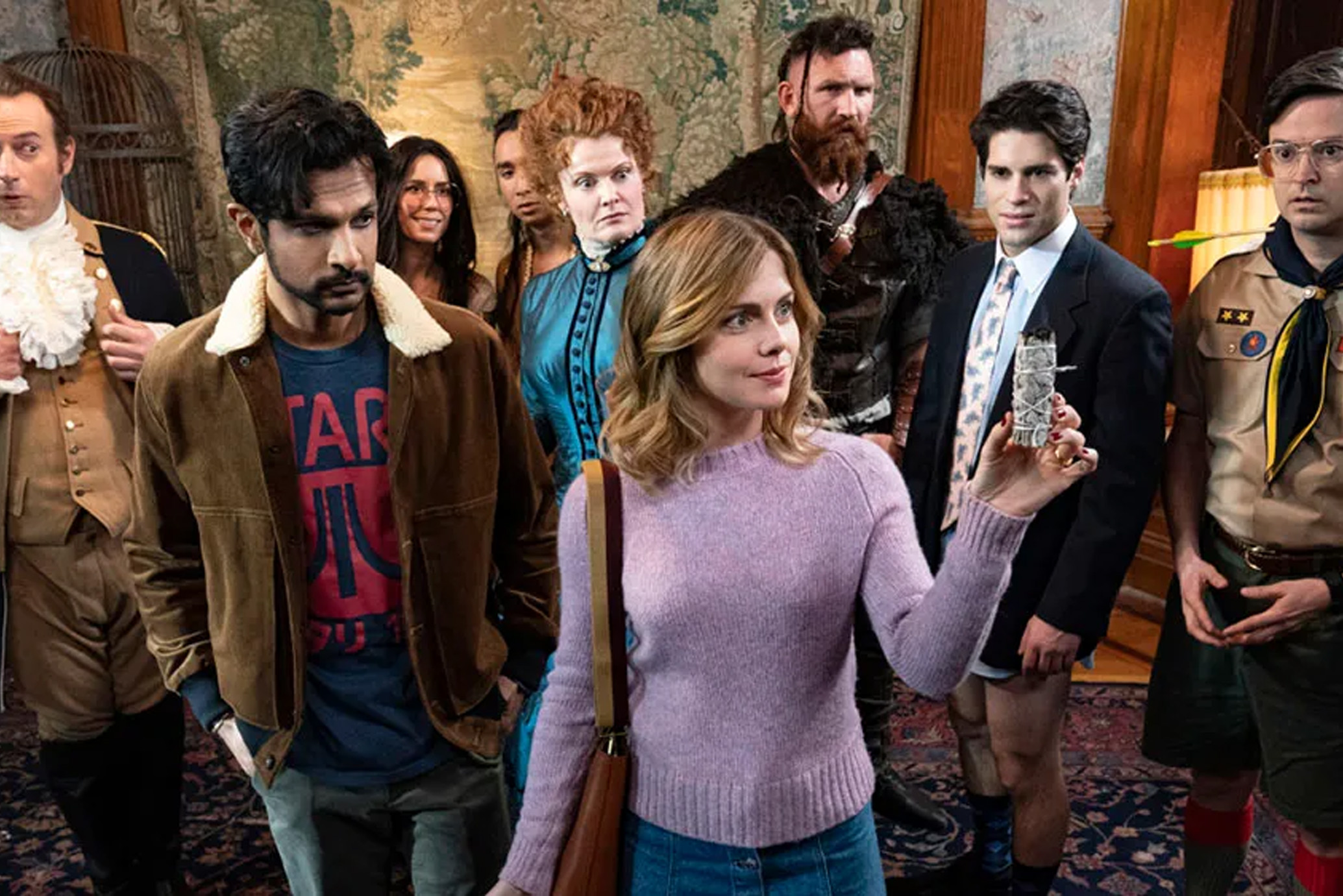Spooky season is officially upon us, so this seems like the perfect time to cover one of my new favorite shows: Ghosts on CBS. The show follows Sam (a journalist) and Jay (a chef), city dwellers who think they’ve hit the jackpot when Sam inherits a gorgeous country estate from a distant relative. Dreaming of opening a bed and breakfast (B&B), the couple soon discover the estate is haunted by the ghosts of those who have perished on the grounds. Even worse, the ghostly residents are less than thrilled about the couple’s new B&B venture.
Sam and Jay struggle to get their business off the ground, as they also deal with a basement full of ghostly cholera victims obsessed with the faulty water heater and a house full of deceased occupants ranging from a TV-loving Viking (Thorfinn) to the prudish former lady of the manor (Hetty) to a hard-partying stockbroker with a Wolf of Wall Street exterior minus the tailored pants (Trevor).
To further complicate things, some of the ghosts have specific powers to affect the living. For example, Trevor can knock over tea cups or even type on the computer with a lot of effort. Thorfinn (killed by lightning) can cause the lights to flicker, and former Prohibition-era lounge singer Alberta can make her singing heard by the living in a rather creepy fashion. When Sam and Jay attempt to introduce a new front desk employee, Freddy, the ghosts are ready to work their mischief.
Hetty (used to leading by fear in her robber baron heyday) strongly disapproves of Sam openly praising Freddy for his excellent work performance. Hoping to get rid of him and teach Sam a lesson on managing staff, she enlists Trevor’s help to create chaos by tampering with Freddy’s online guest booking system. Unfortunately, Freddy checks the security footage and sees the computer keys moving under Trevor’s invisible fingers. Combine that with Alberta’s ethereal singing and all the other ghoulish goings-on, and Freddy ultimately resigns from his employment.
A Valid Claim of Tortious Interference?
This storyline got my employment lawyer brain thinking about any potential claims Freddy may have arising from this series of unfortunate events. While simply being alive (as opposed to his spectral nemeses) isn’t a protected status under federal antidiscrimination laws, Freddy may get creative and allege a state law constructive discharge claim by arguing that he was forced to resign. Unfortunately for Freddy, such claims carry a very high burden for the plaintiff and essentially require a showing that his working conditions were so intolerable that a reasonable person in the employee’s position would have felt compelled to resign.
Freddy may also consider a claim for tortious interference with contractual relations. In the employment context, such claims are generally limited to third parties (not parties to the contract, like employers and supervisors acting within the scope of their employment) who intentionally and improperly interfere with a contract. For example, the Supreme Court of South Carolina recently addressed a similar claim in which the plaintiff alleged that a coworker got him fired by falsely accusing him of inappropriate conduct. While the Court declined to address whether the coworker could be considered a third party to the at-will employment contract, the Court did find that a tortious interference claim may exist when an employer terminates an at-will employee’s employment as a result of an unjustified report to the employer. Even if Freddy were able to identify a proper defendant, he would still face a tough uphill battle to establish such a claim, given supernatural happenings are pretty difficult (if not impossible) to prove and he chose to resign.
Here, in the world of the living, employers should be aware that constructive discharge claims are a potential risk even after an employee resigns and that plaintiffs may potentially name employees individually by raising tortious interference and other claims. Faced with the risk of such claims, some employees may be less likely to report the misconduct of fellow employers, especially as tortious interference claims become more widely known in the workplace. In the meantime, Sam and Jay have enough frightening issues to navigate without adding a litigious former employee to the mix.
Kristin Starnes Gray is a partner at FordHarrison.



